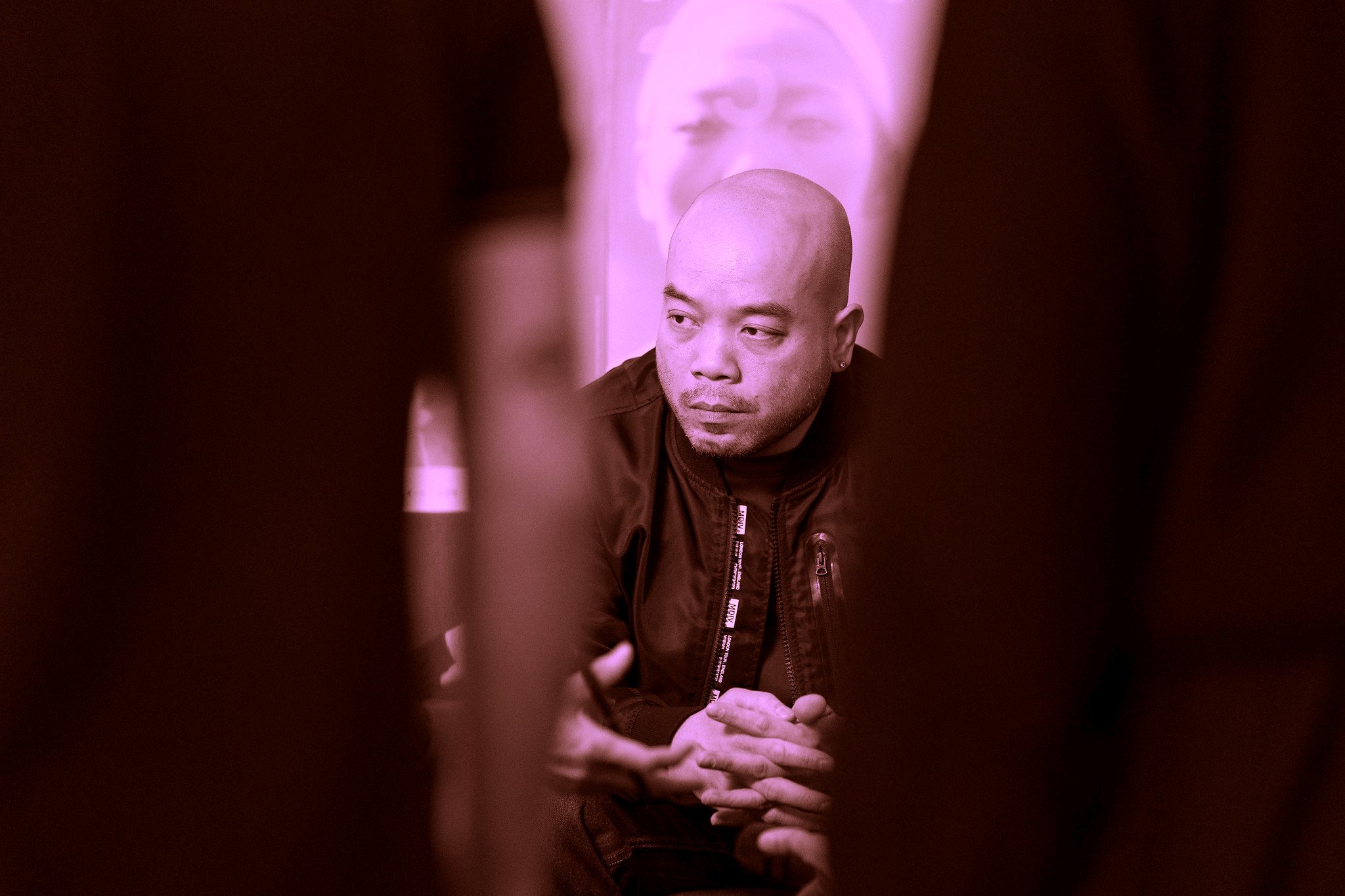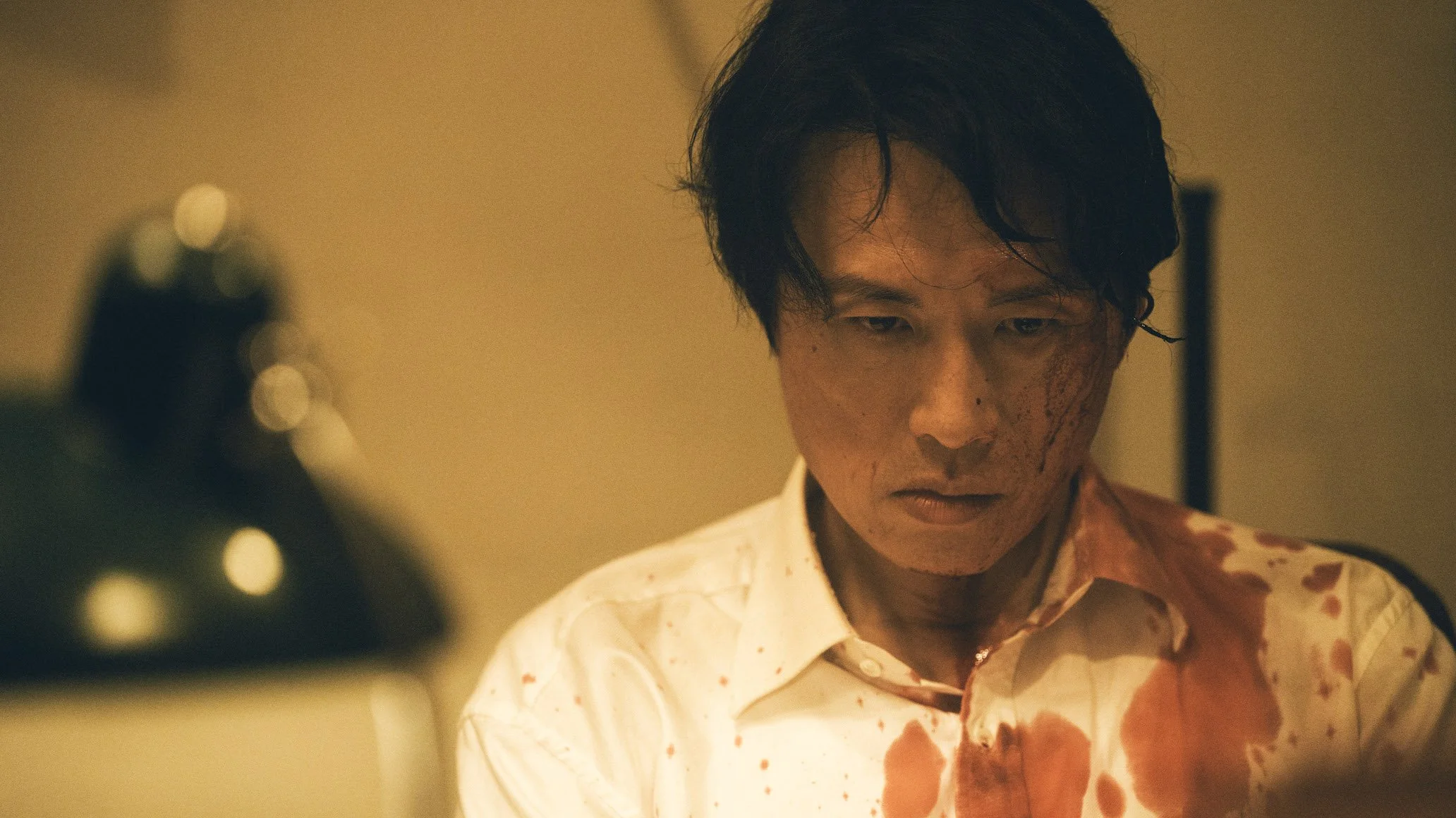Top Hong Kong Gun
After decades in the business first-time director and box office champ Jack Ng is officially an industry darling.
About a week ago, screenwriter, first AD, second unit director, script supervisor, and now filmmaker Jack Ng Wai-lun was sitting in a window seat at Mamm, a low-key chic bakery in Udine near the main theatre the Far East Film Festival uses, chomping on a cheesy focaccia – its specialty – in between interviews, screenings and dinner functions. Dressed as usual in his signature loose jeans, comfortably sloppy t-shirt and sturdy walking boots, Ng was basking in the glow of both the late afternoon sun and his freshly minted glow as king of the Hong Kong box office.
A day earlier, he’s in FEFF’s press office, the guy everyone wanted to talk to as the director who steered A Guilty Conscience | 毒舌大狀 to nearly HK$120 million (and counting) in box office receipts since its January release. We call him Tom, as in Cruise, who saved the movies when Top Gun: Maverick came out. Ng has done the same thing in Hong Kong.
“Oh, god, please don’t say that,” Ng declares with a laugh. He’s quick to laugh through a toothy grin, and he does so often, mostly because he’s equally baffled by the film’s success. Hongkongers love an underdog story about a little guy getting justice, but no one could have predicted how A Guilty Conscience would blow up the way it did. Ng has thoughts.
“I do actually feel quite lucky. You call me a ‘rock star’ and we talk about how much of a hit the film is, and of course I contributed to the outcome; it’s my film. But there were a lot of factors that contributed to the success. I was under a lucky star on this one,” he begins. “The biggest factor was this was the first film after the pandemic, in three years, to come out during Lunar New Year. We could finally all go out and get together – and that often includes seeing a movie. That’s the most crucial element of the success. And Dayo Wong Chi-wah has major star power. He has a huge fan base and he hasn’t done any stand-up or stage in ages. People missed him and he drew a lot of bodies to cinemas.” He finishes by theorising that younger audiences saw it and dragged their parents and grandparents out too, opening the film to people who hadn’t been to the cinema in years. Plus of course, there’s the ever so delicate allegory at play.
“The content of the movie, the legal system, its integrity or lack of it, speaks to Hongkongers right now. They’ve been through a lot in the last few years and they needed a film that would speak to them and help them reconcile their feelings.”
Ng brushes off what he brought to the production but as he admitted, albeit reluctantly, it is his film. Ng has years of experience under his belt penning scripts for the likes of Dante Lam Chiu-yin (Hit Team in 2001, The Twins Effect in 2003, Beast Stalker in 2008), Soi Cheang Pou-soi (Love Battlefield, 2004), Wilson Yip Wai-shun (SPL, 2005), Longman Leung Lok-Man and Sunny Chan Kim-ching (Cold War 2, 2016) and Leung’s HK$63 million-grossing Anita (2021) – which bumps up to Conscience numbers if you count its worldwide grosses. Ng isn’t as lucky as he appears to be. He writes stuff people want to see.
Ng admits he jumped at the chance to finally sit in the big chair after almost 15 years behind a computer screen, and though he refers to himself as a “bit of a gambler” by nature, he was well aware that the shooting days of Beast Stalker are long gone. “Obviously I adopted a cautious attitude. It’s a new world and a new system and we’re all living in it but I tried not to compromise. I didn’t feel pressured but I did feel a responsibility to my investors, and I wanted to maintain marketability.”
Despite the hurdles and against all odds, here’s Ng, four months after initial release, in Italy, with a handful of other Hong Kong filmmakers showing NSL-era films to packed houses, demonstrating universality through specificity. Ng is vehement about not making a Hong Kong movie – commercial or indie – just to be a so-called “Hong Kong movie”, whatever that is.
“Films should be made because the director has a pure, authentic reason to tell a story. It has to be original, and it has to speak from the soul,” he says. To his mind, recent films are working because the filmmakers have stories they believe have to be told, international markets and festivals be damned. “Down the road success for Hong Kong films will be based on the director’s vision and confidence in their beliefs. Their ideas will translate because there’s something honest in them.”
Nonetheless, A Guilty Conscience was a much needed hit that ends on an ambiguous note that could easily birth a franchise. Ng barks a laugh at the idea he might shepherd out The Adventures of Adrian Lam.
“I don’t want to do a sequel,” he says with a shake of his head. “Not because I’m unhappy with it or anything, I’d just like to try something new. But, I’d love to make another film with this cast. They were all terrific, and I’d jump at the chance to work with them again.” He’s got no solid plans, but he’s talking to the boss (probably Edko’s Bill Kong) when he gets back to Hong Kong. Right after the cheesy focaccia. Stay tuned.
Where we were
Far East Film Festival 25 • www.fareastfilm.com
Udine, Italy • April 21-29, 2023
Still showing in Hong Kong





